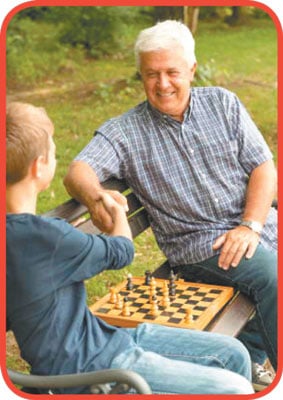By Tracey Matthews, Knox County Schools Supervisor of Family and Community Engagement
Contributing Writers: Candice Campbell and Mary Frances Street, Knox County Schools Family and Community Engagement, University of Tennessee Student Interns
 Many children don’t understand why they have to learn mathematics. The trick to making math relevant in their lives is to use math in activities that matter to them. This allows them to learn practical ways math is important. The key is to always be on the lookout for methods to creatively integrate math into daily activities, so children can positively connect with math and boost their confidence.
Many children don’t understand why they have to learn mathematics. The trick to making math relevant in their lives is to use math in activities that matter to them. This allows them to learn practical ways math is important. The key is to always be on the lookout for methods to creatively integrate math into daily activities, so children can positively connect with math and boost their confidence.
Here are some fun and creative ways to help your child learn and practice basic math skills every day:
Kitchen: Give your child the responsibility of measuring when you are cooking. Fractions can be explored while making and cutting sandwiches in halves, fourths (quarters), etc.
Restaurant: Show your child this neat way to calculate tipping percentages. Circle the total bill (e.g., $32.97). Have him move the decimal place over one place to the left ($3.297). Cross off the last number if you aren’t ready to tackle rounding up or down ($3.29). The numbers remaining represent 10% of the total cost. Multiply that number by 2 (or add it to itself) to calculate 20% of the total cost.
Grocery Store: Help your child weigh different foods at the grocery store and show her how to read the scale. For more fun, have her estimate the whole weight before weighing. Use grocery store coupons and subtract savings.
The Community: Enjoy a “Geometry Scavenger Hunt” at a park or anywhere in your community. Name various shapes, and ask your child to identify objects that mimic that shape. Also ask questions like, “What shape is this sign?”
The Bank: Help your child open a savings account. He will have opportunities to practice balancing a budget/checkbook, understand how interest accrues, etc.
Family Outings: Help your child practice telling time by making her the official “Time Keeper” for the family. This might include being responsible for letting the family know when the family has only five minutes remaining before departure time for an outing or announcing when it’s dinner or snack time.
Calendar: Have your child keep a calendar of important dates and events. Ask him to count the number of days until special events will occur.
Board or Card Games: Use various board games, like Life or Monopoly, to teach your child budgeting and money management skills. For other math skills such as addition or high versus low, play card games like “War” (visit boardgames.about.com/od/cardgames/a/war.htm for instructions) or Dominos (visit www.ehow.com/how_8480509_dominoes-instructions.html for instructions).
Sports: Sports are full of numbers, whether it’s the score or the size of the playing field/court. Have your child explain the hitting percentage of her favorite baseball player or how the point system works in a football game. This way, she can understand these abstract classroom ideas in terms she knows, cares about, and understands.
Books: The importance of reading with your child for 20 minutes a day is essential for learning. Include stories that bring math concepts to life. Ask your librarian to help you find books titles such as Football: The Math of the Game by Shane G. Frederick, Spaghetti and Meatballs for All! by Marilyn Burns or The Hershey’s Milk Chocolate Bar Fractions Book by Jerry Pallotta.
Pocket Change: At the end of each day, empty your pocket change and teach your child how to count it. As his counting skills progress, tell him that he can keep the change for his piggy bank if he correctly adds the change.
For information about math in the Knox County Schools elementary schools and for a list of math resources for both parents and students, visit http://esmath.knoxschools.org.
Incorporating these and other creative ideas into your child’s daily life will help mathematical concepts seem less abstract and therefore easier to comprehend. In short, understanding and applying math is easier and more fun if we are immersed in it starting at a young age and throughout our daily lives.
Tracey Matthews currently serves as Knox County Schools’ District-wide Family and Community Engagement Supervisor. In this position, Tracey has been entrusted with the responsibility to facilitate the district’s course toward building stronger and lasting partnerships between families, schools, and the community. For more information, please visit the Family and Community Engagement at knoxschools.org.
Related posts
Newsletter Subscribe
Newest Posts
Set Up a Parental Control for Online Safety
Have you ever wondered how long your children spend in front of a device without your supervision? Yes, it is…
Adopt A Life, Save A Life
By Jeff Ashin, CEO, Young-Williams Animal Center. Photo by: Young-Williams Animal Center Are you or your child thinking of adding…


